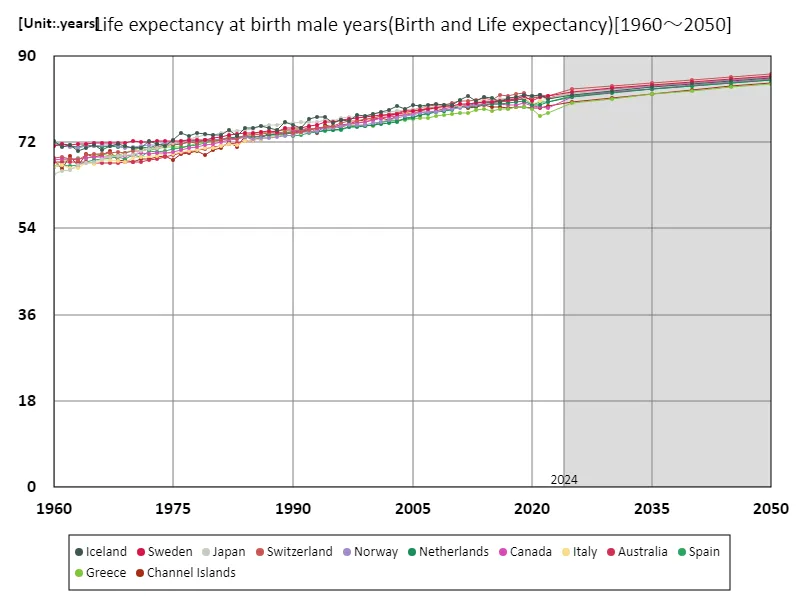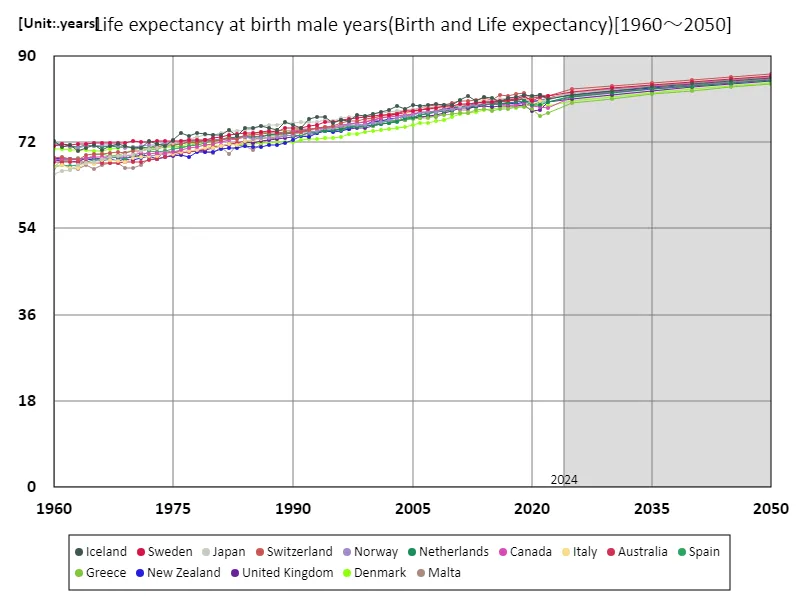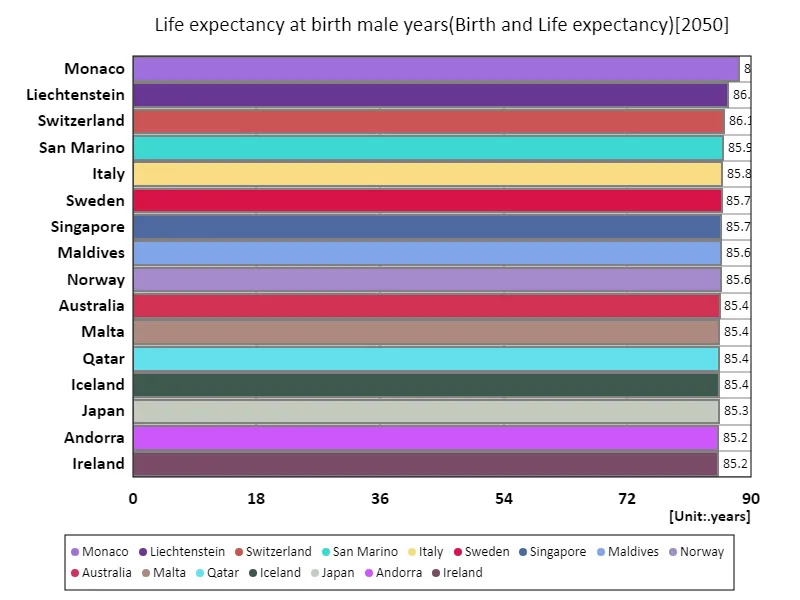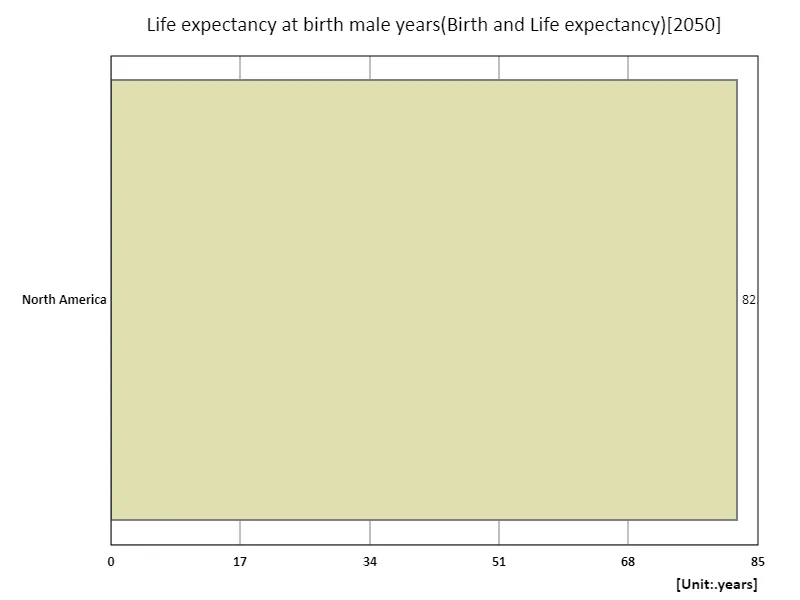Abstract
Over the past few decades, global life expectancy has steadily increased due to advancements in healthcare, nutrition, and living standards. Switzerland, with its exceptional healthcare system, environmental factors, and high standard of living, is projected to lead in 2050 with an average life expectancy at birth of 86.1 years for men. Historically, countries with strong healthcare infrastructure, low poverty rates, and healthy lifestyles, like Japan and Nordic nations, have consistently ranked high in life expectancy, reflecting broader trends in health and economic development.
Life expectancy at birth for males
Life expectancy for men has steadily increased globally due to improvements in healthcare, living conditions, and nutrition. Switzerland, projected to reach a peak of 86.1 years in 2050, exemplifies these trends with a high standard of living, excellent healthcare, and environmental factors contributing to longevity. Since 1960, wealthier nations have led in life expectancy, while developing countries have gradually improved as healthcare and infrastructure expanded. The trend reflects global progress in medicine, sanitation, and economic development, with Switzerland now at the forefront of these achievements.


The maximum is the latest one, 86.1years of Switzerland
Life expectancy at birth for men (worldwide)
Life expectancy for men has consistently risen since 1960, driven by advancements in healthcare, nutrition, and living standards. Switzerland, projected to have the highest life expectancy at 86.1 years in 2050, represents the culmination of these improvements, benefiting from a robust healthcare system, high living standards, and a healthy environment. Historically, wealthier countries have led in life expectancy, while developing nations have seen steady gains. The trend highlights global progress in medicine and quality of life, with Switzerland now reaching 100% of its peak potential.


The maximum is the latest one, 86.1years of Switzerland
Life expectancy at birth for men (world countries, latest year)
Life expectancy at birth for men has steadily increased worldwide, reflecting improvements in healthcare, sanitation, and living standards. Monaco leads the 2050 projections with an impressive 88.2 years, driven by its affluent society, access to high-quality healthcare, and favorable environmental factors. The global average of 75.5 years underscores significant progress, though disparities remain, with wealthier nations generally seeing longer lifespans. Over the decades, economic growth, medical advancements, and healthier lifestyles have contributed to these rising life expectancies, highlighting broader global health trends.


The maximum is 88.2years of Monaco, the average is 75.6years, and the total is 14.1kyears
Life expectancy at birth, male (region, latest year)
Male life expectancy at birth in 2050 reflects shifting global health and economic trends. The euro area is projected to have the highest life expectancy at 84.3 years, driven by advanced healthcare, high living standards, and economic stability. Meanwhile, the global average of 74.2 years highlights significant regional disparities, with developed nations benefiting from better healthcare and technology. Historical improvements in medical technology, rising living standards, and public health measures have boosted longevity, but inequalities in healthcare and living conditions in developing countries persist. While life expectancy continues to rise, regional challenges remain.


The maximum is 82.3years of North America, the average is 82.3years, and the total is 82.3years



Comments